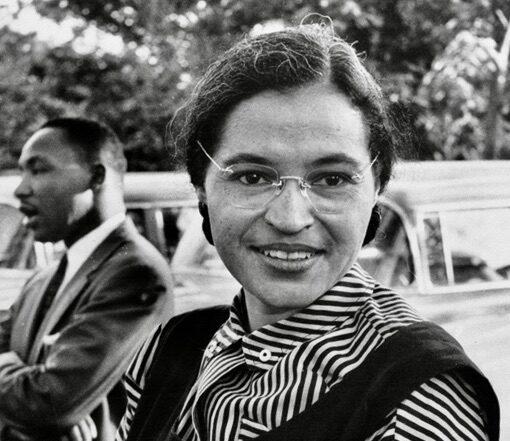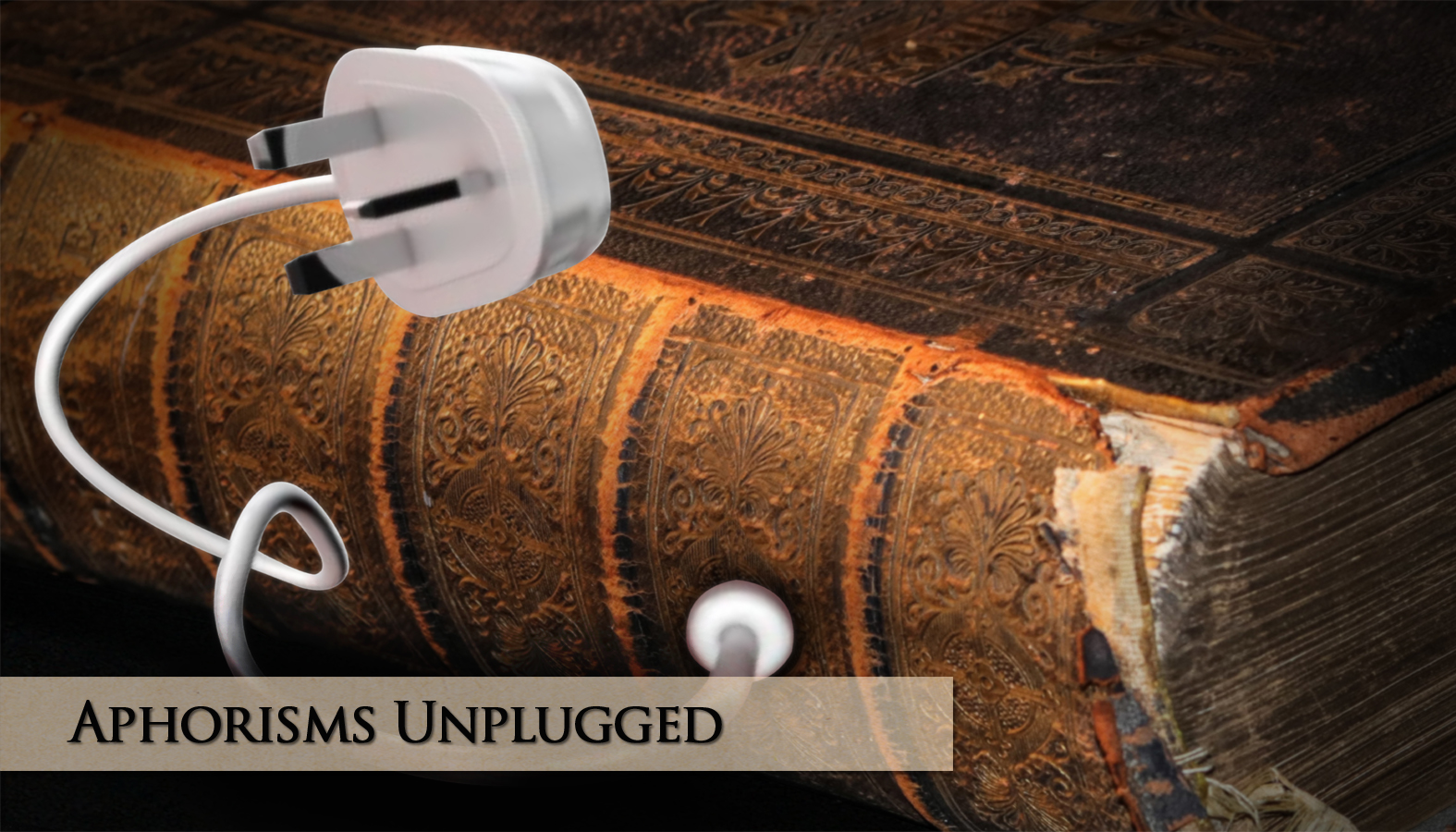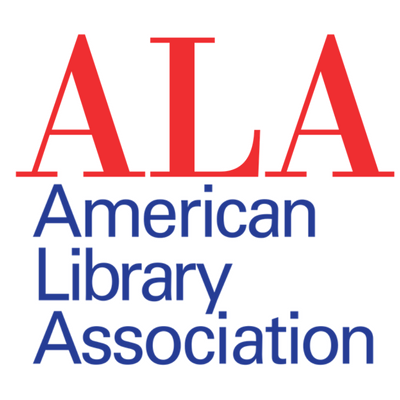Rosa Parks Day: Ensuring Her Story is Told

![]() I
I
t’s Rosa Parks Day! Despite efforts to silence teaching about race and racism, teachers are doing their darnedest to ensure that stories like Rosa Parks’ continue to be told. See some of the testimony that made Rosa Parks Day a reality. And take a look at the NCTE’s (National Council of Teachers of English) statement on antiracist teaching.
Some places celebrate Rosa Parks on her birthday in February. But, in keeping with the legislation introduced by Representatives, Terri Sewell, Joyce Beatty, and Steven Horsford to make Rosa Parks Day a federal holiday, we’re commemorating it on December 1st, the day of her history-making arrest.
As representative Sewell noted:

On December 1, 1955, in Montgomery, Alabama, Rosa Parks sat so that this nation could stand up for the values that our democracy holds so dear.
.
Representative Beatty also pointed out:

Rosa Parks changed the course of history when she refused to give up her seat on a segregated bus in Montgomery, Alabama – sparking a revolution that ignited the Civil Rights movement. She epitomized the Power of One.
.
Plus, representative Horsford admonished:

Her brave and bold actions helped launch a movement for progress and equality, and her story must continue to be told as part of our nation’s history. [1]
.
And teachers are determined to make sure this happens.
Despite recent movements to silence teaching about race and racism, teachers are doing their best to ensure that stories like Rosa Parks’ are told. Students engaging in an honest reckoning with our past is essential to creating a more just and equitable society, not to mention democracy itself. And teachers take that responsibility very seriously, as demonstrated in the NCTE’s (National Council of Teachers of English) position statement on antiracist teaching seen below:

Educators’ Right and Responsibilities to Engage in Antiracist Teaching
Overview

Knowledge of the past exists to serve the needs of the living. In the current context, this includes an honest reckoning with all aspects of that past. Americans of all ages deserve nothing less than a free and open exchange about history and the forces that shape our world today, an exchange that should take place inside the classroom as well as in the public realm generally. To ban the tools that enable those discussions is to deprive us all of the tools necessary for citizenship in the 21st century. A whitewashed view of history cannot change what happened in the past. A free and open society depends on the unrestricted pursuit and dissemination of knowledge. (American Historical Association)
Recently, an honest reckoning with the past has come under renewed attack at the federal, state, and local levels. Legislation has been proposed to cut federal funding for schools that use lessons based on the New York Times’s 1619 Project (Ujifusa, 2021) and 27 states with legislation either passed, pending, or under discussion would severely limit K–12 and university educators’ ability to engage with critical race theory (CRT) and antiracist teaching. Such legislation is “designed to stifle a full exploration of the role of race and racism in United States history” (Association of American Law Schools, 2021). In fact, such legislation stands in opposition to the principles of academic freedom and the comprehensive teaching of history, literature, sciences, and social sciences that are so integral to maintaining a democratic society.
Recognizing that the motivation behind this legislation comes from a desire to silence teaching about race and racism, we also know that many people support these bills because they are informed by divisive soundbites used to provoke fear and knee-jerk reactions. As a result, while many educators, educational leaders, and community members across the country may sense that the bills are unjust, they may also lack the necessary background to fully understand, support, and/or actualize their concerns.
This statement addresses these realities and asserts that antiracism must be a collective effort with educators, students, and community members working as partners, taking action together to bring about social change (Kinloch, 2017) grounded in our belief that “Americans of all ages deserve nothing less than a free and open exchange about history and the forces that shape our world today, an exchange that should take place inside the classroom as well as in the public realm generally” (American Historical Association, 2021). With this foundation, this statement was developed in response to legislation that obstructs antiracist pedagogical efforts to create a more just and equitable society, the principles of academic freedom (e.g., 1940 Statement of Principles on Academic Freedom and Tenure), and the right to teach about systemic and ideological racism.
Statement
The National Council of Teachers of English (NCTE) actively follows recommendations put forth by the Committee Against Racism and Bias in the Teaching of English and the NCTE Statement on Anti-Racism to Support Teaching and Learning (2007/2018) to inform and support accurate public discourse around antiracist education. Drawing from and remaining consistent with earlier assertions, educators have both the right and responsibility to engage in antiracist teaching. Recommendations on how to do so include:
- Identify and challenge individual and/or systemic acts of racism and other forms of discrimination and bigotry in educational institutions and within our profession, exposing such acts through external communications and publications.
. - Express declarations of solidarity with people of diverse human, cultural, and racial backgrounds to eradicate all forms of racism, bias, and prejudice in spaces of teaching and learning.
. - Promote not only cultural diversity and expansive forms of linguistic knowledge, but also explicitly advocate for antiracism by participating in ongoing professional development for educators to productively counter racism and other forms of bigotry.
. - Support the enforcement of laws and policies that provide sanctions against racial and ethnic discrimination in education. Also, advocate for legislative reform that will lead to policies that provide sanctions against discrimination in education based on race, ethnicity, gender, religious affiliation, sexual orientation, class, mental and physical abilities, nationality, and migrant, immigrant, and refugee status.
Furthermore
- Administrators should secure funds and resources to provide opportunities for professional development for teachers and instructional programs that affirm cultural diversity and expansive forms of linguistic knowledge among all students.
. - All educational stakeholders—policymakers, parents and families, and the general public—understand that they can best support educators or teacher professionals and students by actively participating in public conversations about racism and bigotry in our multilingual and multicultural American society, defined in the key opening words of the United States Constitution’s Preamble, “We the People . . . . ”
NCTE also advocates for support for educators at all levels, administrators, students, parents and families, and communities to deepen understandings of antiracist education that includes and emphasizes:
- the importance of antiracist education in a democratic society;
. - that teaching racial histories and antiracist education do not constitute anti-Americanism but serve as one element in an education that supports the development of informed citizens who can work toward a more equitable society;
. - antiracist education as the antithesis of teaching that one race is superior to another or that anyone should feel guilty for the past actions of members of their race; and that “educators must provide an accurate view of the past in order to better prepare students for community participation and robust civic engagement” (American Historical Association, 2021) in the present and into the future;
. - antiracist teaching as that which encompasses the complexity of history including but not limited to systemic and ideological racism, as well as nuances and rich histories of who we are as peoples, including joys, accomplishments, resistance, and resilience;
. - research demonstrating how children receive racialized messages in the first years of life, necessitating that antiracist education begin with our youngest children;
. - strategies for countering rhetoric of fear and reactions to it that would prohibit antiracist teaching at any level (legislation, book bans, curricular bans, withdrawal of funding, etc.);
. - clarification that critical race theory is one of many research-based theoretical frameworks (such as behaviorist, sociocultural, constructivist, critical disabilities, and feminist theories, to name a few) originating in legal studies in the 1970s as a framework for “understanding . . . racial inequity within our social, economic, political, legal, and educational systems . . . even absent of individual racist intent . . . among other exclusionary systems [sexism, classism, homophobia, etc.]” (American Association of Law Schools, 2021).
Stories like Rosa Parks’ matter, because they’re part of our nation’s history. And teachers are on the front lines in the battle against silencing education about race and racism in this country. As this position statement demonstrates, they take this responsibility very seriously.

Share This Post, Choose a Platform!
Endnotes:
[1] “Reps. Sewell, Beatty, and Horsford Introduce the Rosa Parks Day Act to Designate Dec. 1st as a Federal Holiday Honoring Rosa Parks.” January 12, 2023 Press Release from U.S. Congresswoman Terri Sewell. https://sewell.house.gov/2023/1/reps-sewell-beatty-and-horsford-introduce-the-rosa-parks-day-act-to-designate-dec-1st-as-a-federal-holiday-commemorating-the-arrest-of-rosa-parks#:~:text=%E2%80%9COn%20December%201%2C%201955%2C,this%20country%20for%20the%20better.
References and Resources:
Article printed from National Council of Teachers of English: https://ncte.org
URL to article: https://ncte.org/statement/antiracist-teaching/
American Association of University Professors. 1940 Statement of principles on academic freedom and tenure. https://www.aaup.org/report/1940-statement-principles-academic-freedom-and-tenure
American Historical Association. (2021). Joint statement on legislative efforts to restrict education about racism in American history. https://www.historians.org/divisive-concepts-statement/
American Library Association. (2022). Equity, diversity, and inclusion. https://www.ala.org/advocacy/diversity
Anderson, P. (2021). The conspicuous absence of Derrick Bell—Rethinking the CRT debate, part 1. http://www.blackagendareport.com/conspicuous-absence-derrick-bell-rethinking-crt-debate-part-1
Association of American Law Schools. (2021). Statement by AALS on efforts to ban the use or teaching of critical race theory. https://www.aals.org/aals-newsroom/statement-on-critical-race-theory/
Bell, D. (1992). Faces at the bottom of the well. New York: Basic Press.
Delgado, R., and Stefancic, J. (1984). Critical race theory: An introduction. New York: NYU Press.
Gorski, P. (2019). Equity literacy practices. http://www.edchange.org/publications/Avoiding-Racial-Equity- Detours-Gorski.pdf
Kinloch, V. (2017). “You ain’t making me write”: Culturally sustaining pedagogies and Black youths’ performances of resistance. In D. Paris & S. Alim (Eds.), Culturally sustaining pedagogies: Teaching and learning for justice in a changing world (pp. 25–42). Teachers College Press.
Ladson-Billings, G. (1998). Just what is critical race theory and what’s it doing in a nice field like education? International Journal of Qualitative Studies in Education, 1(1), 7–24.
López, F., Molnar, A., Johnson, R., Patterson, A., Ward, L., & Kumashiro, K. (2021). Understanding the attacks on critical race theory. National Education Policy. Center. https://nepc.colorado.edu/publication/crt
MSNBC on YouTube. Creator of term “critical race theory” Kimberlé Crenshaw explains what it really is (2021). https://youtu.be/n4TAQF6ocLU
NCTE Committee Against Racism and Bias in the Teaching of English. (2019). What anti-racist language teachers do. http://ncte.org/app/uploads/2018/07/WhatAntiRacistLanguageTeachersDo.pdf
Stanford University. Anti-racism toolkit. https://cardinalatwork.stanford.edu/manager-toolkit/engage/diversity-inclusion-resources-managers/anti-racism-toolkit
Taylor, E., Gillborn, D., & Ladson-Billings, G., eds. (2015). Foundations of critical race theory in education. New York: Routledge.
Statement Authors:
This position statement was developed from an original resolution created by the 2021 NCTE Committee on Resolutions. The 2021 NCTE Committee on Resolutions combined two resolutions to produce the text for a single resolution. Existing NCTE work from the Committee Against Racism and Bias in the Teaching of English also provided substantial guidance and is listed in the citations. At the direction of the NCTE Presidential Team and the NCTE Executive Committee, NCTE leaders used the text from the resolution as the basis for this NCTE position statement.
2021 NCTE Committee on Resolutions:
Susi Long (Chair), University of South Carolina
Katrina Bartow Jacobs (Associate Chair), University of Pittsburgh Renée Wilmot, Michigan State University
Lynsey Burkins, Dublin City Schools, OH
Becky Sipe, Eastern Michigan University
Images:
Rosa Parks. Unknown author – USIA / National Archives and Records Administration Records of the U.S. Information Agency Record Group 306. Downloaded from Wikipedia. Public Domain.
Teachers. Photo by Element5 Digital on Unsplash


















